We are just eleven days into 2021 and I have claimed THIS to be the year that I make peace with food. My intention is to help my body become fueled by foods that can sustain a slower aging process, offer solid and sound nutrition and be a formidable ally in increasing my energy levels and weight loss.
Bottom line: Food and I have had a difficult relationship for all of my 56 years. We struggle to stay in a healthy relationship. In fact, I would probably go so far to say that I have disordered eating.
Let’s get this out of the way quickly. I am a trauma survivor (thriver). My ACE score is a 10. I love to add humor to that truth about myself by sharing that my ACE score is the only time in my life that I have been a “Perfect 10.” Cue the “10” movie music with iconic Bo Derek running down a beach somewhere with her hair in beautiful long braids….but, instead, you have 5’ 3” tomboyish Amy ducking and dodging, mostly by hiding high up in a tree somewhere, from the ACE list of assaults, and more, as I moved through childhood and adolescence. All the while, I was relentless in trying to grow up with hope, faith, dreams, and determination. Thank you, dissociation!
Just this past December, it became abundantly clear to me on a whole other level that there is a significant connection between food decisions and deep attachment wounding. Thank you 2020 for sharing yet another profound self-discovery moment as you head out the door.
Back in 1972, I was just 8 years old and living alone with my mother. We’ll get back to that.
My parents divorced when I was 4, after years of trying to blend a family with four teenagers and a new baby (me). There was tremendous chaos in the home I spent my earliest years with frequent domestic violence. My oldest brother was consistently in significant trouble that had an anti-social flair to it. My father’s two daughters were struggling with the recent death of their biological mother and resisting any attempt, albeit probably misguided, at bonding my mother offered. Both sisters were interested in me, but honestly, surviving emotionally was a critical task for them as they approached their 20s. Karen married very young and Sue threw herself into nursing school. I can now see clearly how they escaped the chaos. I came along as quite a surprise to my parents as they entered their fourth decade, and I imagine just my being was unwelcome and disruptive to this already fractured family system. My mother shared with me that it felt confusing to her to witness how much her father loved me when he previously had urged her to have an abortion when learning she was pregnant with me. He suggested that I would probably ruin her life. My mother used valium and alcohol to cope with her own troubled life, along with a hot temper. When I was two, she landed in a psychiatric hospital for suicidal behaviors. One “normal” day, she dropped me off at daycare, picked me at the end of the day and took me to a new home. Gone was my big yellow house, father, sisters and yard with all the trees…and my many stuffed animals that kept me company. Home was now an apartment with Jeff, my elder brother by 12 years and my shelter in the storm of my childhood, and her. At least Mrs. Beasley was still always there to keep me company. As my mother showed me to my new room, with most of my things missing (at least those things that are important to a 4-year-old), she found great joy in telling me that she made sure Mrs. Beasley came with us.
Life for the next three years was a bit calmer, at least by my family’s standards. I spent my 5th birthday looking out my bedroom window watching my party happen. My mother was upset with me, yet again, for being “too much and too sensitive.” I was punished on the day of my party, finally able to join in the fun later in the day. My oldest brother and his girlfriend had a baby, which meant I became an aunt at age 6. I totally fell in love with my nephew. Fifty years later Christian is a “little brother” and soul partner that I cherish in ways I cannot describe. We have walked through the depths of hell together and thrived in ways that should have been impossible.
At this new apartment, Jeff was around all the time. I liked it. As Jeff was trying to balance becoming a young man deciding about colleges, he also balanced caring for an inquisitive chatterbox 5-year-old sister and alcoholic mother.
At age 7, a trio of tragic events hit my young life and destroyed any semblance and shred of secure attachments that I was able to form in the years prior. Jeff left for college, leaving me alone with my mother. My father died suddenly of a massive heart attack. I met, and then never saw again, my paternal grandparents at the gathering after my father’s funeral. This event also led to the slow erasing of my relationship with my sisters, Karen and Sue.
For my first 7 years of life, I found great comfort in the chaos, uncertainty, abuse and dysfunction of my family. Now, I was suddenly alone. Alone with my mother and her alcoholic valium addiction, laced with a two pack a day habit of Marlboro Light 100s. My mother had at least two, maybe more, very distinct parts to herself. Marilyn was a hard-working social worker during the height of her working years. In fact, as her career began to wind down, she developed the first hospice program at the hospital in which she worked. That was no small feat in the late 70s and early 80s when talking about death and dying was still a taboo subject in many ways. I do feel strongly that years after my mother went into recovery, she was able to express her love for me. From my mid/late teens until my mother passed away in 2014, I was aware of her love for me. The earliest years of my life, when my natural and healthy need for secure attachment was strongest, sadly intersected with the most difficult years of my mother’s life. The situation becomes untenable when a child’s emotional, physical and secure attachment development is interrupted by booze, drugs, blackouts and lack of attunement from the only available caretaker.
The ongoing damages can heal, and leaves scars. The scar tissue of healing self-worth never really goes away. Is it impossible to make up for what should have been and never was? Is there a small percentage of wounding left unhealable? Can a person with disorganized attachment transformed to earned secure attachment ever feel the same sense of worth as a person who grew up with secure healthy attachment?
During the ages of 7-12, I basically raised myself. As my mother’s alcohol dependence deepened, she could barely make it through a workday, let alone care for me in the evening. Bottom line…I was hungry most nights. She was not available physically, emotionally, or soberly to make dinner for me. I hid under the kitchen table for most of these years.
DRIVE THRU LOVE BECOMES MY SAVIOR
During these toughest of years, my mother would satisfy my pestering for dinner by taking me to the Burger King drive thru for dinner. On these special nights, I would climb into the back of my mother’s gold Buick Skylark as she drove, drunk most times, to the nearest Burger King. There was a friendly, energetic voice that would come through the loudspeaker at the ordering station. Then a few feet later, I would be greeted by a smiling person at the window who delivered my dinner to me at the back window of our car. All my senses would come alive. I could see the smiling, attentive person who was focused only on me in the back seat. I could feel their attention to me in those few moments of interaction. I could smell the yummy french fries. I could taste the juicy hamburger. I could hear and really take in the kind words of, “See you later, have a nice day.” This was my attunement utopia as a little girl. I felt loved. This was all it took to activate oxytocin in my system, and this is where I learned to go to have it activated. I remember wondering if this is what it is like for my school friends who went home after school to a warm house filled with laughter, connection and family dinners. I later learned, with my own family, that yes, family dinners and connection time are much more than passes through a drive thru.
And so began the pattern that would form a lifelong habit. All of my life, when I felt “out of whack,” alone, forgotten, and anxious, I would head to the nearest drive thru for a quick hit of oxytocin, pleasure center-induced “food,” and human connection that felt like real love to younger parts of me. Until I was 40, it was easy to get away with this habit. I was thinner and in fairly good shape physically all of my life thanks to years of being a dancer and then 15 years as a dance teacher.
No one noticed this shadow side of my life.
I kept my own secret. My kids were raised on family dinners and healthy food.
Even for the past 16 years, I have been able to escape the deep dive into this dark area of my humanity. I haven’t been able to escape the 50 pounds I have put on, but I have avoided becoming exceptionally clear on the connection to my weight struggle and early attachment wounding. Doing that work is some deep shit. I have spent the last almost 12 years unraveling the huge, tangled spaghetti bowl of trauma, attachment injuries and dissociative responses to life and could have almost considered myself “good enough for now” from a healing perspective.
Wrong.
Back to last December. On December 17, 2020, I was in the dentist chair early in the morning having a permanent crown put on tooth #19. Due to a few other personal experiences that were happening in my life, my dissociative system was on high alert. My powerful parts were not having any of it for this dental procedure and were doing all they could to block the anesthetic. After four sets of three shots each, my mouth was finally numb enough to have the dental work done. The dental experience was terribly painful and I felt like I was run over by a truck. Childbirth may not have hurt as bad. I left the dental office feeling a strange combination of relief, sadness, isolation, and betrayal.
Once home, I made myself a healthy breakfast of two scrambled eggs, tomatoes, and half an avocado. Off to my office I went to see my first client at 11AM.
Then something happened inside of me. I had to go through the McDonalds drive-thru near my office. I wasn’t hungry, but it felt like I was. I ordered and ate breakfast AGAIN! Small parts of me where craving to be soothed and connected to and seen. Usually I do that work myself, yet on this day, that need was out of my awareness. I felt horrified and ashamed of myself before long, while allowing tons of self-compassion and empathy to comfort the shame.
Clarity gave way to understanding how this all makes perfect sense. Feeling hunger when also feeling unseen, unloved or disconnected from other people translates into drive thru dining. Drive thru love. It isn’t a hunger for food, but a hunger for attunement. Small bits, crumbs if you will, of attunement. Just enough to keep a human soul alive.
As I finish this essay, I realize it’s been a month now since my full awareness of “Drive Thru Love,” and I haven’t been back to a drive thru. My intention is that this time, the awareness and shame empower me to begin speaking out.
“Drive Thru Love” is another nuanced aspect of a trauma survivors/dissociative persons system that can be so well hidden that even the most astute detective-minded clinician can miss it. I missed it with several (that I know of) dissociative clients.
Mary (name changed) and I have been working together for two years and she has DID (Dissociative Identity Disorder). We meet each Monday morning, and honestly, it is the best start to my week. She works incredibly hard, and I am honored to be her therapist. She also struggles with significant midlife weight gain. Our session together ends just about at lunch time. Mary’s parts frequently lead her to the nearest drive thru after therapy. She is working diligently to shift her behavior to going home after therapy to make a healthy lunch. This week, Mary did it.
Sometimes we really are just literally a step ahead of our clients. Many times, I am a step behind as well.
I have been noticing “Drive Thru Love” behavior all over the place with my clients and bringing it up in session. And yes, it’s tough to open that discussion. Tough for my clients. Tough for me. The toughest conversations in working with folks who have a dissociative response in life revolve around food, money and sex. Those are the deep dives that really need to happen. As clinicians, we need to start talking amongst ourselves about how to make this happen. How to move beyond the surface level conversations around these topics to the deep reservoir of early hurt, pain, and shame that drives the most secretive of patterns and behaviors and could even possibly keep our clients and ourselves from even better lives.
I plan to keep talking about these tough topics. Why? Because I am wondering if going to the toughest of places is where the juicy center of the healing is. I am wondering if the thwarted self-worth development can grow to look and feel as if 100% secure attachment and attunement had been healthy all along.
I am wondering for my clients and for myself.
Because 90% healing isn’t good enough for me.

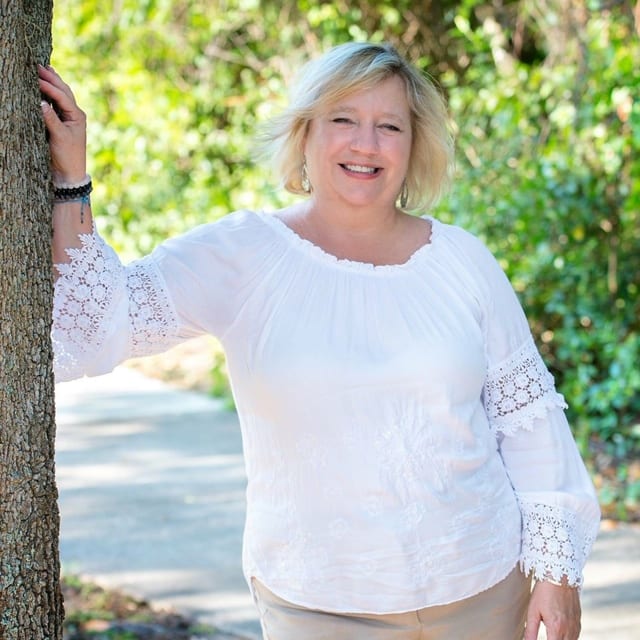

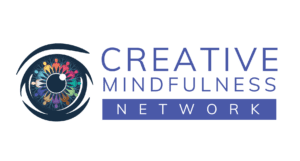
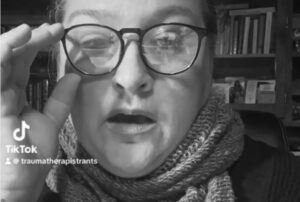

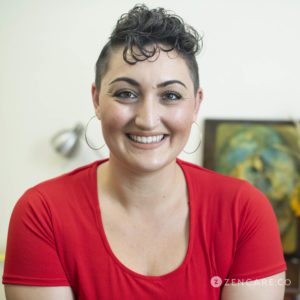

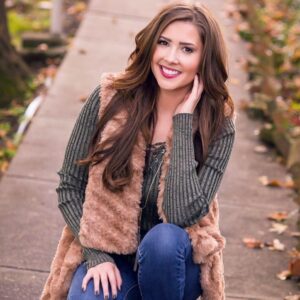
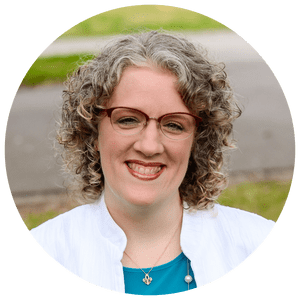


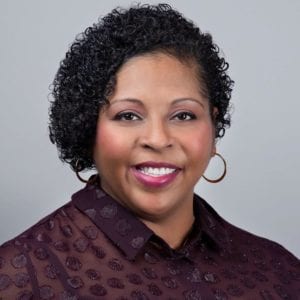
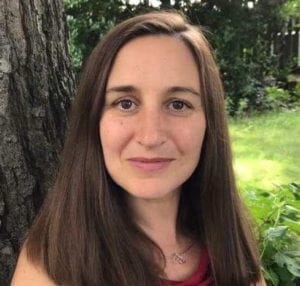

7 Responses
This was so helpful to me. I’m in tears even though food/attention from a drive thru is not exactly my attachment need being met, I resonate so much with this. As a therapist who dissociates also, I find it refreshing to acknowledge this for me and for my clients. The session right before I read this involved a deep dive into shopping addiction for a client who recognized that 5 year old self in poverty drives this seeking of contentment from the right purchase-”maybe this will make me feel better”. Thank you for sharing part of your story. (Side note, I wonder if my powerful parts also get involved when I’m at the dentist, cuz I’ve had that same experience with numbing not working at all).
Wow this is a coincidence. I had the exact same thing happen at the dentist on December 17 2020, although in my case I was getting a tooth extracted. In the end the dentist stopped because I couldn’t get numb.
My pattern of using food to numb the deep scream of unmet attachment needs came way to the surface this past year also. It makes sense to me given the mass scale enforced isolation we’ve been going through, and as I live alone that was heightened. In general I eat pretty healthy, which masks the fact that I have disordered eating too – at least as a tendency I can fall into when I’m out of capacity. The addictive drive for cakes and chocolate has been louder in me than ever before. I don’t blame myself because I know exactly what its there for, but it is a problem as it is harming my body – the need for a tooth extraction, for example.
Thank you for sharing. These energies have such a powerful impact on our unconscious. It’s good to see how this story is a shared one.
This article was incredibly helpful. Thank you for your honesty. I resonate with this on a couple of levels. First, the part of thinking all is good after a lot of hard work. I thought I have taken care of all the shame, thank you very much. Of course that doesn’t work that way. This time when I saw that part again I was open to it. It felt like had been trying to cut out part of myself but I don’t have to.
(Doesn’t work anyway). I have been grateful also also to hear the honesty that other therapists have around this. Also I am so glad you shared about your eating disorder. That can be a very dissociative part. Even after asking all the “right” questions clients aren’t always open about that. I love the work Andrew Seubert does with EMDR Therapy and eating disorders. Thank you again Amy for you honesty and yes, even courage.
Nicely done, took a lot of courage.
Amy, Thank you for this beautiful and vulnerable piece.
When we take the risk to share our difficult parts and how we have soothed them We both normalize and inspire others. I know That there will be people who read this and it will change how they approach their trauma coping behaviors. You rock!
I am so touched by your story. I am so proud of you as a colleague; for the transformation, in front of my eyes, over the years; your development both professionally and individually… Your confidence, kindness, intelligence, pacing, humor, wisdom. I am so lucky to know you and to benefit from your contributions. Thank you, Amy
Thank you for sharing so openly. It’s such a universal theme and resonates. It’s helping me make connections, so thank you!